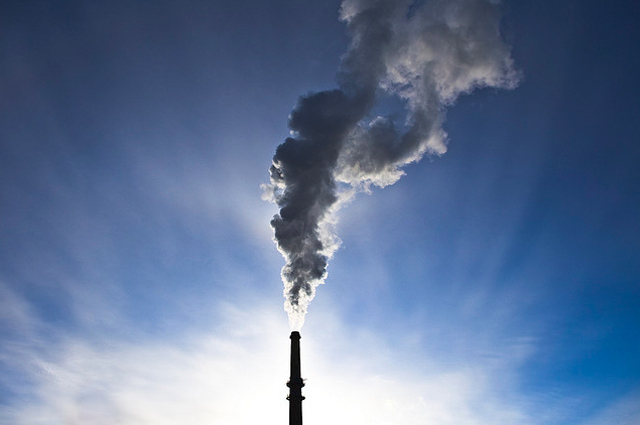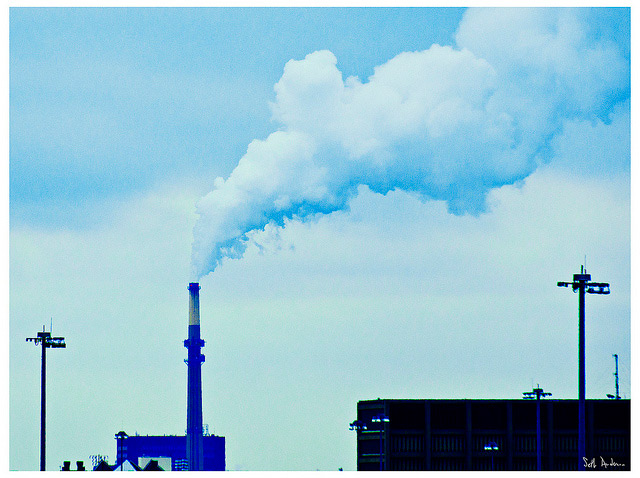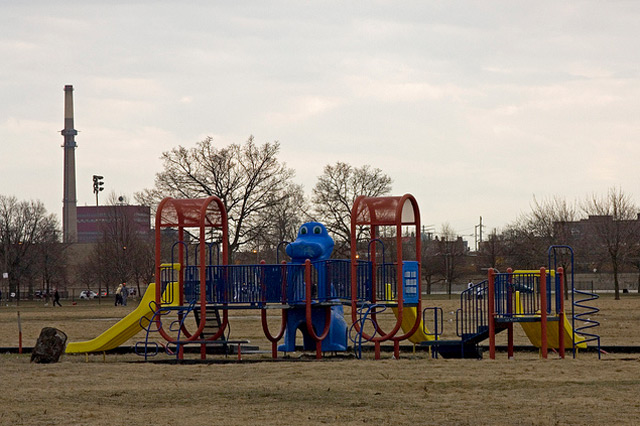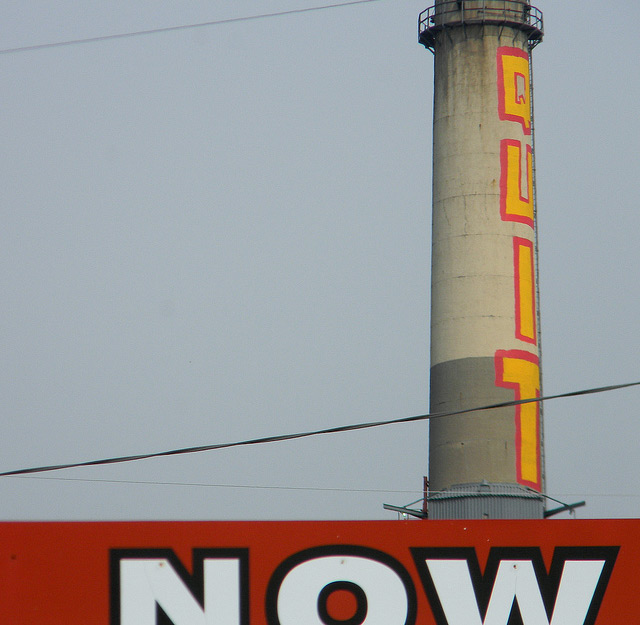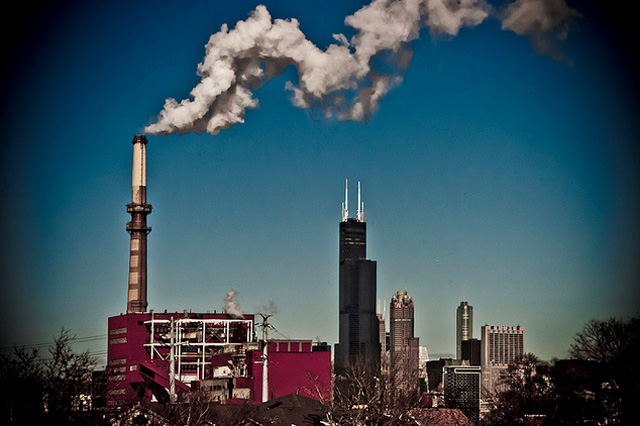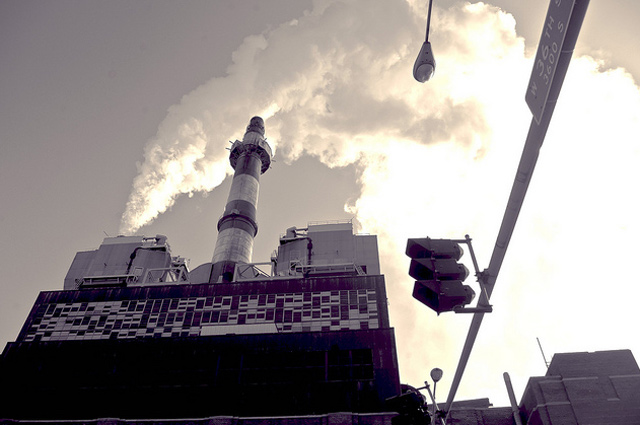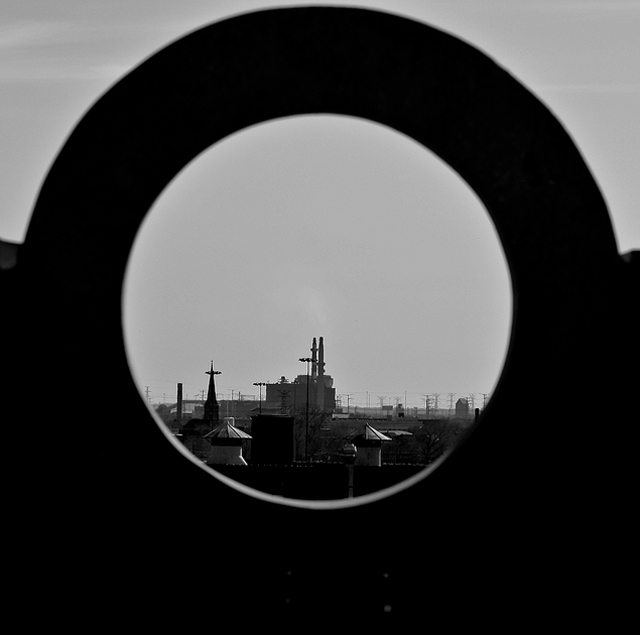Chicago Coal Plants Quietly Burn Their Last Lumps
By JoshMogerman in News on Sep 1, 2012 8:00PM
A massive milestone for Chicago’s skies passed quietly this week as the long-embattled Fisk and Crawford Generating Stations burned their last lumps of coal, bringing an early close to an ugly outlier era for the city, as noted by the Trib:
The Fisk power plant, in service since 1903, burned its final batch of coal Thursday while its sister plant Crawford shut down by Wednesday, ending Chicago's run as the only major U.S. city with two coal plants operating in its borders.After hearing the news, we cruised over to check out the scene on Cermak. While the street around the Fisk plant has never been particularly quiet, we were struck by the reduction of noise in the area (the plant's ruckus was previously audible for blocks around as well as across the river in Palmisano Park, or “Mt. Bridgeport,” as Chuck prefers to call it) and the disappearance of the formerly ubiquitous white plume emanating from the massive smokestack. No doubt those changes have not been lost on neighbors who waged war to close the plant for decades.Their closings, confirmed by owner Midwest Generation, eliminate Chicago's two biggest industrial sources of carbon dioxide emissions, which contribute to global warming.
The mothballing does not signal the final chapter for either plant just yet. Big questions remain about the future of both sites and the remediation that is likely necessary to make them reusable. WBEZ reports:
[Midwest Generation President Douglas] McFarlan, meanwhile, said the company is trying to sell the Chicago sites. The timing of environmental remediation “depends on the interests” of the buyers, he said.Neighbors of the plants in Pilsen and Little Village have high hopes for the redevelopment of both properties, however it is unclear if they can be sold or will remain dormant in the long run. But for this week anyway, there is no doubt that the neighbors are breathing easier.
“It’s part of the sales process,” McFarlan said, adding that a school might have different cleanup needs than a warehouse.
The closings resulted partly from federal clean-air rules requiring Midwest Generation to retrofit its plants. McFarlan said a bigger factor was the rise of natural gas production, which has put downward pressure on energy prices. “We just can’t run profitably,” he said.
